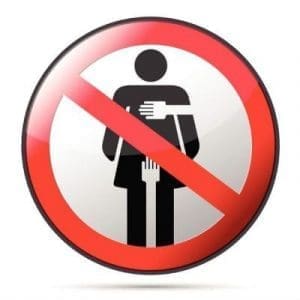 High profile media reports of sexual harassment are becoming a daily occurrence and the more it gets reported, the more apparent it becomes that sexual harassment is the exercise and abuse of power. This is as true for Harvey Weinstein in Hollywood, as it is for international political figures from Berlusconi to Trump, to the most recent expose, the Presidents Club event held at the Dorchester Hotel in London’s Park Lane.
High profile media reports of sexual harassment are becoming a daily occurrence and the more it gets reported, the more apparent it becomes that sexual harassment is the exercise and abuse of power. This is as true for Harvey Weinstein in Hollywood, as it is for international political figures from Berlusconi to Trump, to the most recent expose, the Presidents Club event held at the Dorchester Hotel in London’s Park Lane.
It was this event, paraded under the guise of a men-only charity fundraiser, that really highlights how the hospitality industry can be the unwitting and unwilling facilitator of sexual harassment. In this case, exposed by an undercover reporter of the Financial Times, it was not the hotel staff who were the primary victims of the harassment, but the hostesses who were employed specifically for the event. Employed by an agency who in their contracts, specified the dress code, including short black dresses and high heels and had a “gagging clause” that prevented any disclosure of the event, ever!
The Dorchester is one of the iconic London hotels, who while they have launched their own internal investigation into the event, will find the many national and international press and media references linking their name to sexual exploitation and harassment, very uncomfortable. This is particularly so when they have an explicit zero-tolerance policy regarding harassment of guests or employees.
Such policies are important but it is in the implementation that things can become more difficult. A recent survey of UK hospitality workers by the Unite Union suggests that in excess of 80% of those responding to the survey reported experiencing one or more incidents of sexual harassment. Of those nearly 2/3 reported incidents where they had been subjected to harassment from guests with the balance being harassed by managers.
Hospitality workers are vulnerable to such harassment, their place of work and the environment can be a catalyst for some unacceptable actions and behaviour. This behaviour would not be accepted in the perpetrators’ professional environment, yet in a hospitality environment and away from home, it can be considered acceptable or even encouraged. In the past, some of this type of harassing behaviour both verbal and physical may have been considered as “part of the job”, but that culture is rapidly changing. Very public figures are being toppled as incidents of sexual harassment and the victim’s stories enter public awareness. What chance now of an “Oscar” for Harvey Weinstein or Kevin Spacey?
The hospitality industry must ensure that it is in tune with the public zeitgeist and that this behaviour wherever and whenever found is completely unacceptable. The industry has a “duty of care” for whoever walks through the door, be they guests or staff. How they exercise that duty and the attendant responsibilities are an organisational, cultural and operationally complex issue. Making sure all staff are fully aware of the sexual harassment and similar policies, and actions and processes for reporting incidents is essential.
Unfortunately, the Unite survey suggests that a large proportion of the workers surveyed – in excess of 70% -stated they were not aware of any such harassment policies or the actions of management that could be expected. They were, however, broadly supportive that their managers would take action in dealing with incidents. However, where the complaint relates to a guest, unless it is immediately reported, this exacerbates the problem and it is likely to be unresolved.
The example of the Dorchester event, is but one of many, where the event is facilitated by the industry but not “owned” by the industry. In these circumstances, the sexual harassment may well be seen by the management as beyond their control; however, this does not negate their responsibilities. For some people the guest- service relationship is one of power and it is in these circumstances that predatory and unacceptable behaviour can occur. How the staff and management respond is crucial in minimising the risks to the individual and the organisation.
The hospitality industry, by its very nature, could be seen by perpetrators, as creating the opportunity for such behaviour, either by guests on staff or staff on staff. As the #metoo movement has shown, the public acceptance of such behaviour has changed and the industry must respond, not just with zero tolerance polices, but with total commitment.
About the author
Professor Peter Jones is the Dean of the eHotelier Academy. With a distinguished career in hospitality, education and training, Peter has been involved with national and international projects with clients involved in hospitality education. Peter is a Director of the Edge Hotel School and of Hotel Future, a new education and training initiative in Greater Manchester and is a Visiting Professor at the University of Derby. He was also awarded a Member of the Order of the British Empire for services to the hospitality industry.















